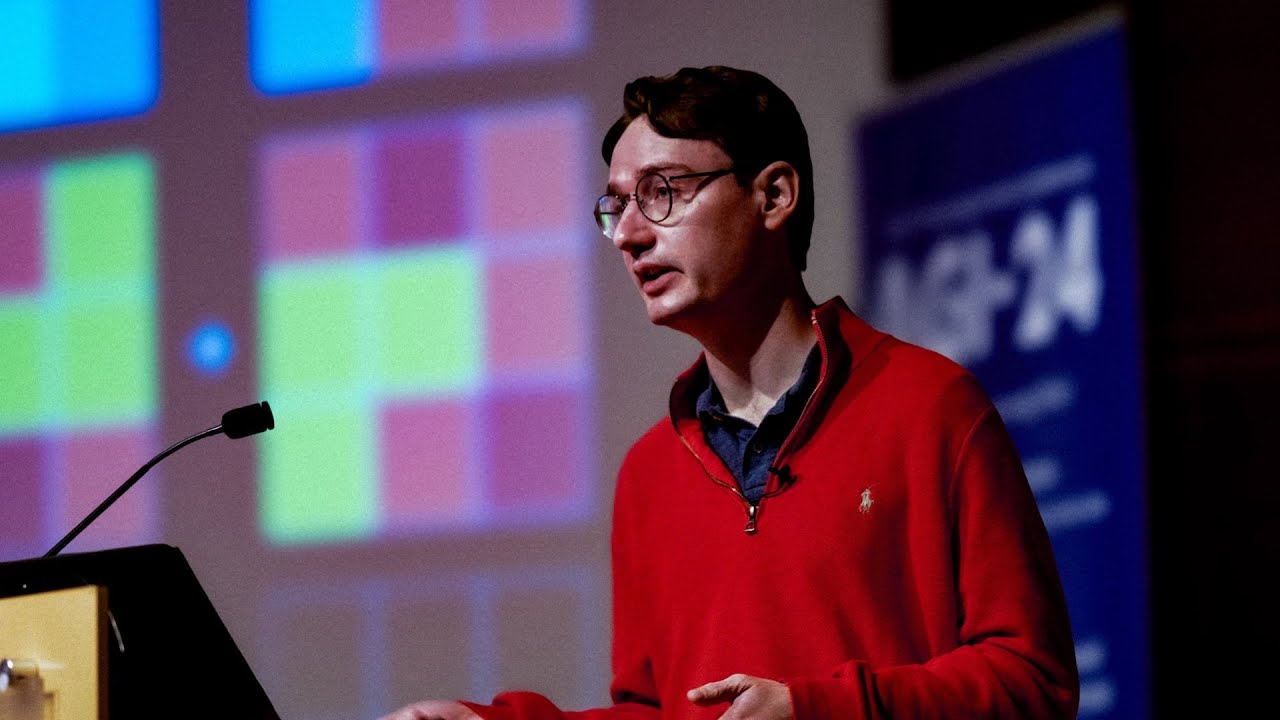The video explores the “kaleidoscope hypothesis,” which suggests that intelligence is about extracting reusable abstractions from experiences rather than merely performing tasks, highlighting the limitations of large language models (LLMs) in achieving true general intelligence. The speaker advocates for a new approach that combines deep learning with discrete program synthesis to enhance AI’s reasoning and problem-solving capabilities, introducing the “Abstraction Reasoning Corpus for Artificial General Intelligence” as a tool for evaluating AI’s generalization abilities.
The video discusses the “kaleidoscope hypothesis,” which posits that the world, while appearing complex and novel, is fundamentally structured around a few core “atoms of meaning.” The speaker emphasizes that intelligence involves mining experiences to identify and extract these reusable abstractions, which can then be recombined to understand new situations. As the conversation shifts towards artificial general intelligence (AGI), the speaker stresses the importance of defining and measuring intelligence accurately, moving beyond mere task performance to understanding the underlying processes that enable intelligent behavior.
Reflecting on the hype surrounding AGI in early 2023, the speaker notes that despite predictions of widespread job displacement due to AI capabilities, employment rates have actually increased. This discrepancy highlights the limitations of large language models (LLMs), which, while they can pass exams and perform specific tasks, do not exhibit true general intelligence. The speaker outlines several inherent issues with LLMs, such as their reliance on pattern matching, sensitivity to phrasing, and challenges with generalization, which indicate that they are not yet capable of robust understanding or reasoning.
The speaker argues that the current approach to AI, particularly the use of LLMs, is fundamentally flawed because it conflates skill with intelligence. They draw a distinction between static skills—task-specific abilities—and fluid intelligence, which encompasses the capacity to adapt and generalize across unfamiliar situations. This distinction is crucial for understanding the limitations of LLMs, which excel in specific tasks but struggle with novel problems that require deeper reasoning or abstraction.
To advance AI towards true general intelligence, the speaker proposes a new direction that combines deep learning with discrete program synthesis. They explain that while LLMs are effective at value-centric abstraction (pattern recognition), they fall short in program-centric abstraction (reasoning and problem-solving). By merging these two approaches, AI systems could leverage the strengths of both continuous learning and discrete search, enabling them to handle complex tasks more effectively.
Finally, the speaker introduces the “Abstraction Reasoning Corpus for Artificial General Intelligence” (AGI), a dataset designed to evaluate AI’s ability to generalize and synthesize programs from minimal examples. They highlight ongoing competitions aimed at improving AI performance on this dataset, emphasizing the need for innovative approaches that go beyond current LLM capabilities. The video concludes with a call to action for researchers to explore new ideas and contribute to the development of AGI, suggesting that breakthroughs may come from unexpected sources rather than established labs.
